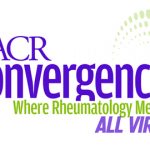
Sentavio / shutterstock.com
SNOWMASS VILLAGE, COLO.—Current trends in rheumatoid arthritis (RA) therapy are the increased use of newer medication categories, such as Janus kinase (JAK) inhibitors (Jakinibs) and biologics, and the rising costs of treatment. Unchanged is the consistent use of methotrexate as an effective therapy. These topics and more were discussed at the ACR Winter Symposium during the session, Update in RA Therapy: 2020, by Michael E. Weinblatt, MD, John R. and Eileen K. Riedman Professor of Medicine, Harvard Medical School, Boston, and R. Bruce and Joan M. Mickey Distinguished Chair in Rheumatology, Brigham and Women’s Hospital, Boston.
Dr. Weinblatt gives this talk every year, he said, because of the importance of the topic and the ever-changing world of therapeutics in RA. “The talk was really designed to update the audience on what’s currently being published in the field of [RA] and highlight some concepts that have been emphasized over the past couple of years.”
Topics of discussion included methotrexate, biologics, Jakinibs and issues in RA therapy, such as biosimilars and medication costs.
Methotrexate
Methotrexate remains the cornerstone of RA treatment, Dr. Weinblatt said, noting it’s currently the most common drug used to treat RA worldwide. The reason? It’s effective as a monotherapy and enhances other drugs’ efficacy when used in combination therapy. Also, one-third of patients who take it go into remission, and it’s relatively inexpensive.
Dosing is a key part of any discussion of methotrexate, because it’s effective when given at a therapeutic dose of 17.5–25 mg/week, Dr. Weinblatt said. However, a June 2017 publication in Arthritis Care & Research showed that of 35,640 patients who started methotrexate, only 37% were on doses higher than 15 mg/week before they were switched to a biologic.1
“Rheumatologists should dose escalate with methotrexate, and only after achieving doses of 20–25 milligrams per week should you think about adding another drug,” Dr. Weinblatt recommended. At these doses, because the bioavailability may be reduced, the drug should be administered either as a weekly subcutaneous injection or in two doses, once in the morning and once in the evening, once a week.
This modified regimen may also help address intolerance related to gastrointestinal distress, nausea and fatigue, which are the most common reasons patients stop taking methotrexate. Other options to minimize toxicities, said Dr. Weinblatt, are to lower the dose or to take supplements, such as folic acid or—if that fails—folinic acid at least eight hours after the methotrexate.

